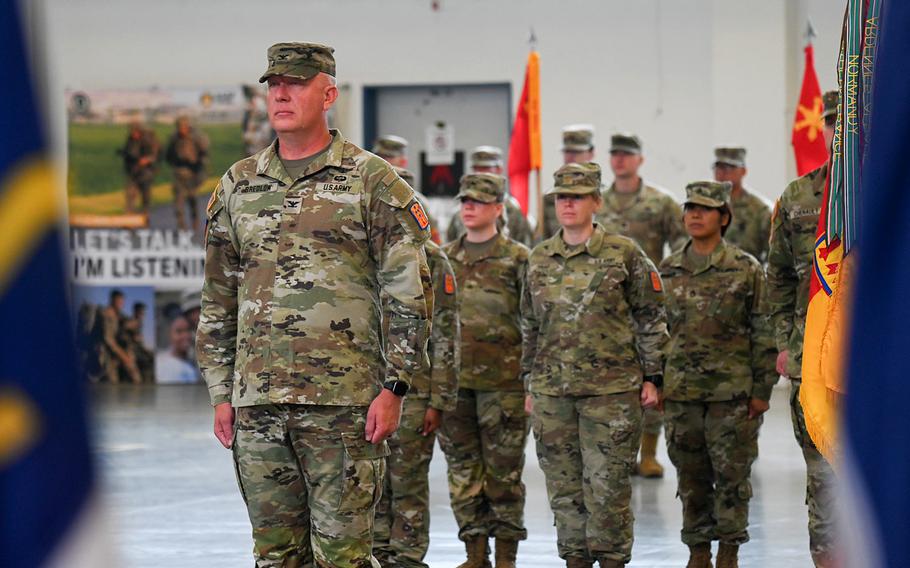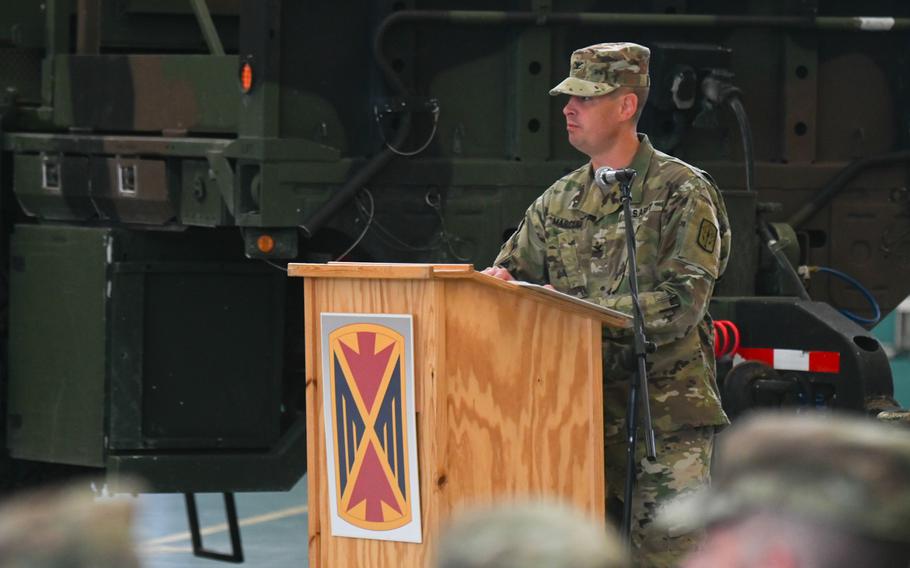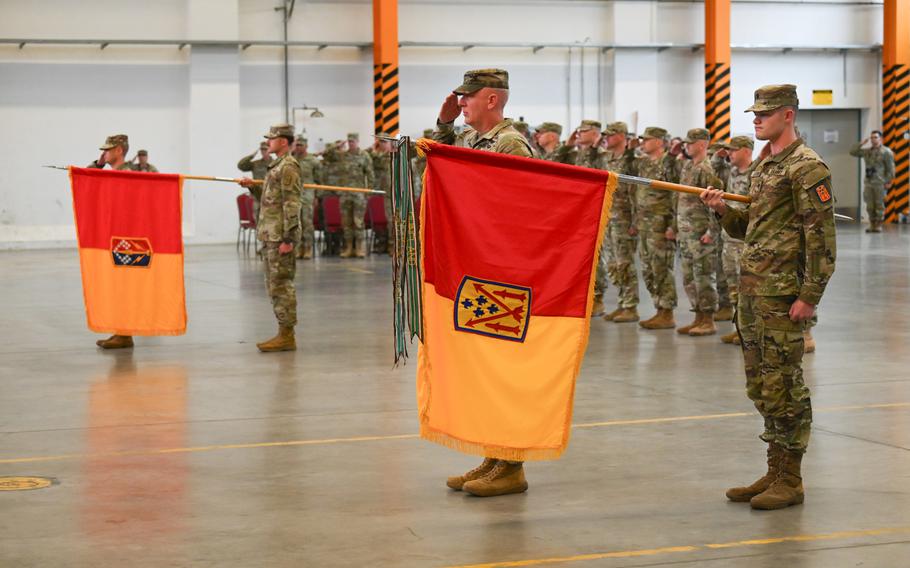
Col. Bruce Bredlow, commander of the 52nd Air Defense Brigade, stands in front of his formation during an assumption of command ceremony for the 5th Battalion, 4th Air Defense Artillery Regiment on Aug. 2, 2023, in Ansbach, Germany. (Michael Slavin/Stars and Stripes)
ANSBACH, Germany — The recently activated 52nd Air Defense Brigade assumed authority Wednesday of Army air defense artillery efforts in Europe, marking a step forward for the service as it reconstitutes its long-range fire capabilities.
The milestone, made official at a ceremony at Katterbach Kaserne, means that the 52nd will oversee the day-to-day operations of the 5th Battalion, 4th Air Defense Artillery Regiment, also a relatively new arrival in Europe.
The brigade will take over more units in the coming months, including the future 1st Battalion, 57th Air Defense Artillery Regiment, Army officials said Wednesday.
The change, combined with the reactivation of the 7th Engineering Brigade last week in Ansbach, is part of a larger effort to reinforce gaps in the air and ground defenses of Europe.

Col. Gradey Marcum, commander of the Ohio National Guard’s 174th Air Defense Artillery Brigade, makes his final remarks as head of the 5th Battalion, 4th Air Defense Artillery Regiment during an assumption of command ceremony on Aug. 2, 2023, in Ansbach, Germany. (Michael Slavin/Stars and Stripes)
“After the Cold War ended, the Army moved most of its short-range assets to the National Guard and downsized in the European theater,” Col. Bruce Bredlow, commander of the 52nd Air Defense Brigade, said following the ceremony. “Since then, we have realized the need for more forces in Europe.”
The 52nd took over command responsibility from the Ohio-based 174th Air Defense Artillery National Guard Brigade.
The activation of the 52nd Air Defense Brigade was announced by President Joe Biden during a 2022 NATO summit as part of a broader build-up in Europe in response to fears of a potential spillover into allied countries from Russia’s war on Ukraine.
Previously, rotational National Guard units had mission command of artillery in Europe.

Col. Bruce Bredlow, commander of the 52nd Air Defense Brigade, and Col. Gradey Marcum, commander of the Ohio National Guard’s 174th Air Defense Artillery Brigade, stand and salute during an assumption of command ceremony for the 5th Battalion, 4th Air Defense Artillery Regiment on Aug. 2, 2023, in Ansbach, Germany. (Michael Slavin/Stars and Stripes)
Since it was activated in 2022, the 52nd Air Defense Brigade has been gradually taking shape.
The decision to station an active-duty unit in Europe to take over command highlights the Army’s growing mission on the Continent.
The 4th ADA regiment now operates as a permanently stationed unit in Ansbach and has grown to 113 personnel.
Bredlow said the war in Ukraine reinforces the need for long-range artillery in Europe.
“If an event kicks off, air defenses allow the flow of forces into the theater,” Bredlow said. “If we don’t have that here, we could be paralyzed by the enemy.”